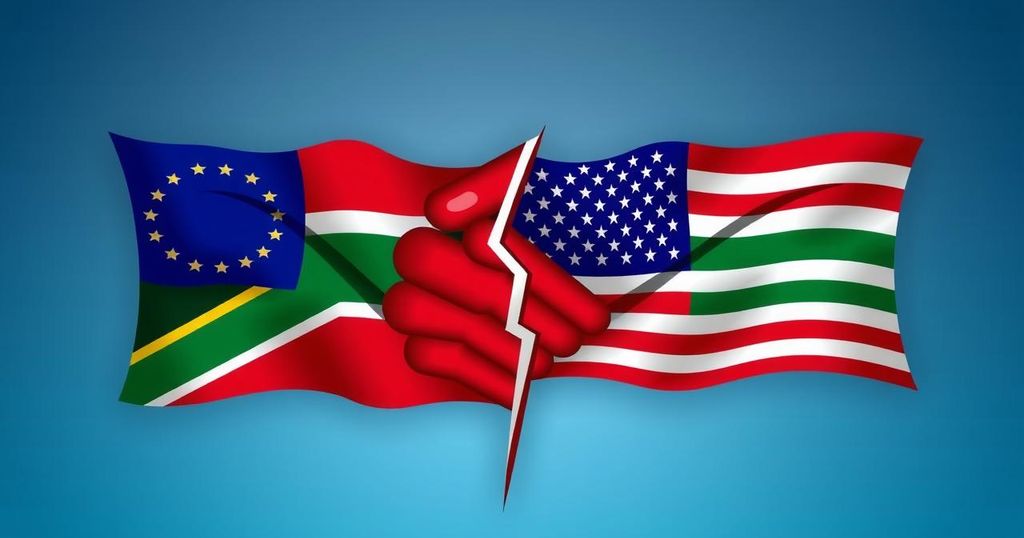US Expels South African Ambassador Amid Deteriorating Relations

US Secretary of State Marco Rubio declared South Africa’s ambassador, Ebrahim Rasool, persona non grata, citing his negative sentiments towards the US and Trump. This diplomatic action follows a decline in US-South Africa relations after Trump halted financial aid due to disapproval of South Africa’s land policy and its actions against Israel at the World Court.
On Friday, US Secretary of State Marco Rubio pronounced Ebrahim Rasool, the South African ambassador to the United States, as persona non grata, labeling him a “race-baiting politician” who harbors animosity towards America and President Donald Trump. Rubio emphasized, “South Africa’s Ambassador to the United States is no longer welcome in our great country,” underscoring the decision to sever diplomatic engagement with Rasool.
Ebrahim Rasool submitted his credentials to former President Joe Biden on January 13, marking the commencement of his term. According to the South African embassy’s website, this appointment represents Rasool’s second tenure in Washington, D.C. However, no immediate comments were received from either the US State Department or the South African embassy following this significant diplomatic shift.
Relations between the United States and South Africa have notably declined since President Trump withdrew financial assistance to South Africa, a decision fueled by his disapproval of the country’s land reform policy and its International Court of Justice case against Israel, a US ally. This recent expulsion could be seen as a further reflection of the tense diplomatic climate between the two nations.
The expulsion of Ambassador Ebrahim Rasool highlights the current strain in US-South Africa relations, exacerbated by recent diplomatic and financial disputes. As Secretary of State Marco Rubio firmly stated, the ambassador’s persona non grata status signifies deep-seated tensions stemming from policy disagreements and perceptions of hostility. The diplomatic rift underscores the complexities of international relations in the context of domestic political views and global alliances.
Original Source: www.scmp.com








